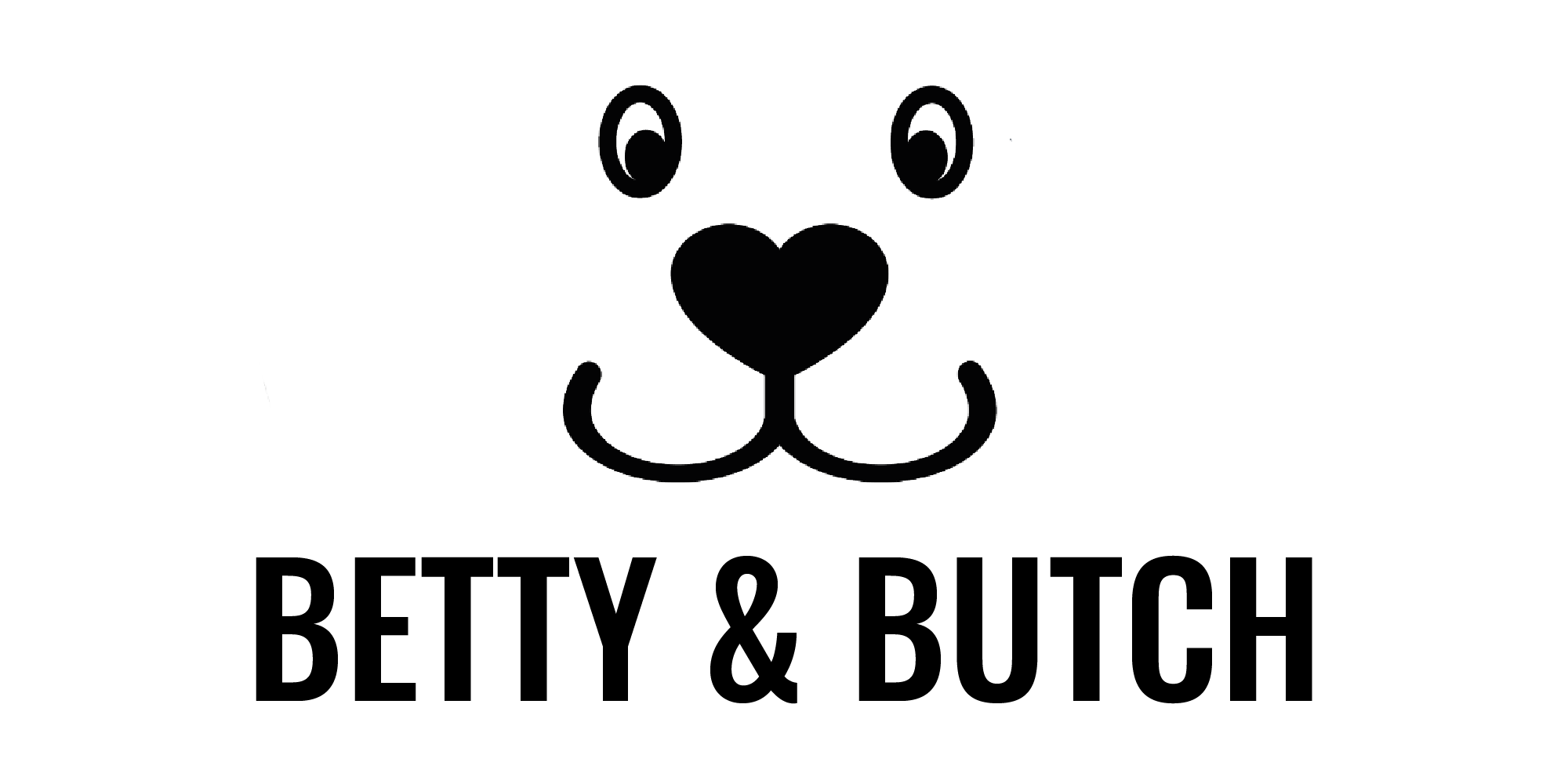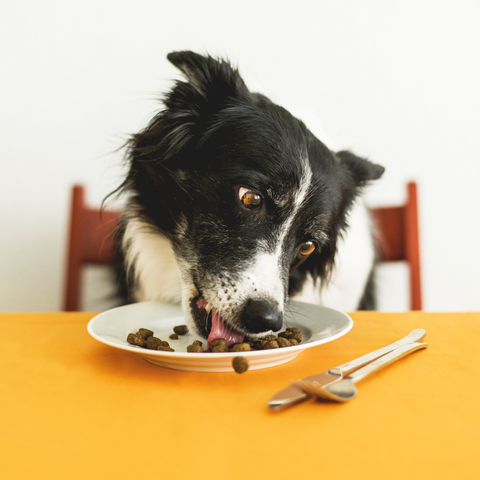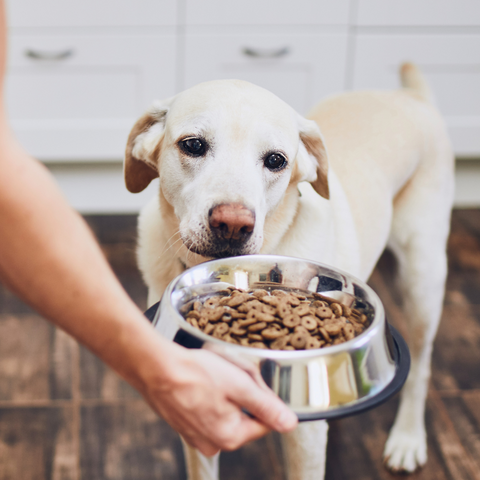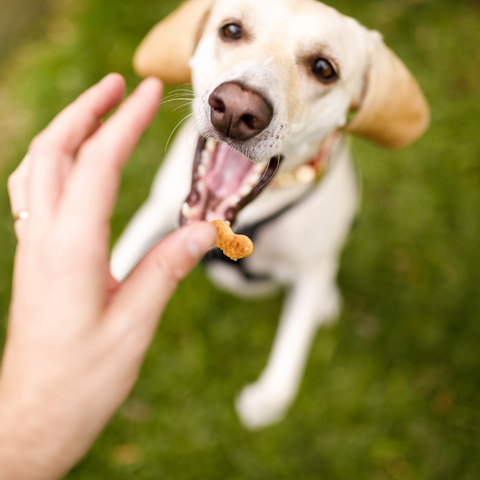Has your pup ever regurgitated his food shortly after eating it? It’s a common occurrence for dogs to throw up their meals sometimes, and it can leave you feeling frustrated, confused and even concerned. In most cases there is a straightforward explanation as to why this happened - the dog may have eaten too quickly, or exercised soon after scoffing down his dinner. But occasionally the cause can be more complex. If your four-legged friend repeatedly throws up undigested food then read on to discover 10 possible reasons why...
Not chewing their food properly - Dogs need to chew their food thoroughly in order to properly digest it
As dog owners, we want nothing but the best for our furry friends. It's important to remember that dogs need to properly chew their food in order for their digestive system to function properly, just like humans. Not chewing their food thoroughly can lead to digestive issues such as vomiting, bloating, and even gastric torsion. While it may be tempting to rush through mealtime, taking the time to ensure your pup is properly chewing their food can improve their overall health and well-being. So next time you catch yourself trying to speed through feeding time, take a moment to remember the importance of proper chewing for your beloved canine companion.
Eating too fast - Eating too quickly can lead to swallowing air, which can lead to vomiting
Eating too fast may seem like a convenient way to save time, but it can actually have some not-so-convenient consequences. One of those consequences is swallowing air, which can result in some pretty unpleasant feelings. Not only can this lead to belching and bloating, but if you're really unlucky, it can even lead to vomiting. Thankfully, there are ways to combat this issue. So, next time you're rushing through a meal, take a deep breath and slow down. Your stomach will thank you.
Eating something they shouldn't have - If your dog has gotten into the trash or eaten something toxic, they may vomit up undigested food
It's every dog owner's worst fear - coming home to find your furry friend rooting through the trash or munching on something they shouldn't have. While it may seem harmless at first, there is always the risk that your pup has ingested something toxic. If this happens, there's a good chance you'll notice some stomach upset, and in many cases, your pup may vomit up undigested food. But don't worry, there are plenty of things you can do to help your pup feel better, including calling your vet, monitoring their symptoms closely, and making sure they stay hydrated. Remember, prevention is key, so always be mindful of what you leave within your pup's reach!
Stress or Anxiety - If your pup is feeling anxious or scared, they may vomit up their food as a result
As dog owners, we always want our furry friends to be happy and healthy. Unfortunately, just like humans, dogs can experience stress and anxiety too. And one of the most common symptoms is vomiting. It's important to remember that if your pup suddenly vomits after eating, it may be a sign of something more serious than just an upset stomach. If you suspect your dog is struggling with anxiety, try to identify the root cause and explore ways to help them relax. Whether it's through exercise, playtime, or even meditation, by taking steps to reduce your pup's anxiety, you can help them live a happier and healthier life.
Overeating - Too much food at once can cause an upset stomach and vomiting
Overindulging in food can lead to unpleasant consequences. Eating large quantities of food beyond what your stomach can handle can cause discomfort and nausea. Not only can it be physically uncomfortable, but it also takes a mental toll on your overall well-being. When we eat, our bodies release hormones such as dopamine and serotonin, which make us feel good. However, overeating can result in a backlash of negative emotions such as guilt and shame. To avoid the unpleasant after-effects, it’s important to be mindful of how much we’re consuming and to listen to our bodies’ signals before it’s too late.
Food intolerance - Certain breeds of dogs are more sensitive to certain types of foods than others
Just like humans, dogs can also experience food intolerance. Interestingly, some breeds of dogs are more prone to certain types of food sensitivities than others. For example, Labrador Retrievers are more likely to develop a sensitivity to grains, while German Shepherds are more prone to chicken allergies. It's important for dog owners to pay attention to their furry friend's eating habits and any signs of discomfort or symptoms of intolerance. By identifying and avoiding problematic foods, owners can help their pups live a healthy and happy life.
Eating spoiled food - Spoiled food can cause your dog's stomach to become upset leading to vomiting
It's never a good idea to feed your dog spoiled food. Not only can it make them sick, but it can also cause their stomach to become upset and lead to vomiting. As dog owners, it's our responsibility to ensure that our furry companions are eating fresh and healthy food that will keep them nourished and happy. While it may be tempting to give them that last bit of chicken from the fridge, it's important to check the expiration date and give them only what is safe and healthy for their digestion. After all, a healthy dog is a happy dog!
Motion sickness - If your pup gets car sick easily, they may vomit after eating due to the motion of the car
As much as we love taking our furry friends on joyrides with us, motion sickness can ruin the whole experience - for both you and your pup. If your furry companion gets car sick easily, it's not uncommon for them to vomit after eating. This happens when the motion of the car throws their digestive system off balance, causing discomfort and nausea. However, there are some tricks you can try to make car rides more enjoyable for your furry friend, like feeding them small meals and ensuring they're comfortable in their spot. After all, nothing makes a journey feel longer than a queasy pup in the backseat.
Feeding your dog the proper nourishment is paramount for its physical health and well-being. By taking precautionary measures like avoiding foods that could be harmful, helping them take their time when eating, and checking if they are feeling any sickness or illness, dog owners can ensure their canine friend always has a full tummy at meal times. If after all your precautions you still suspect that your pup may be having issues with digesting their food, it's definitely recommended to reach out to a trusted veterinarian who can properly examine and provide care for your dog. So let's keep our pups happy and healthy by giving them nutritious meals they will love!




Comments (0)
There are no comments for this article. Be the first one to leave a message!